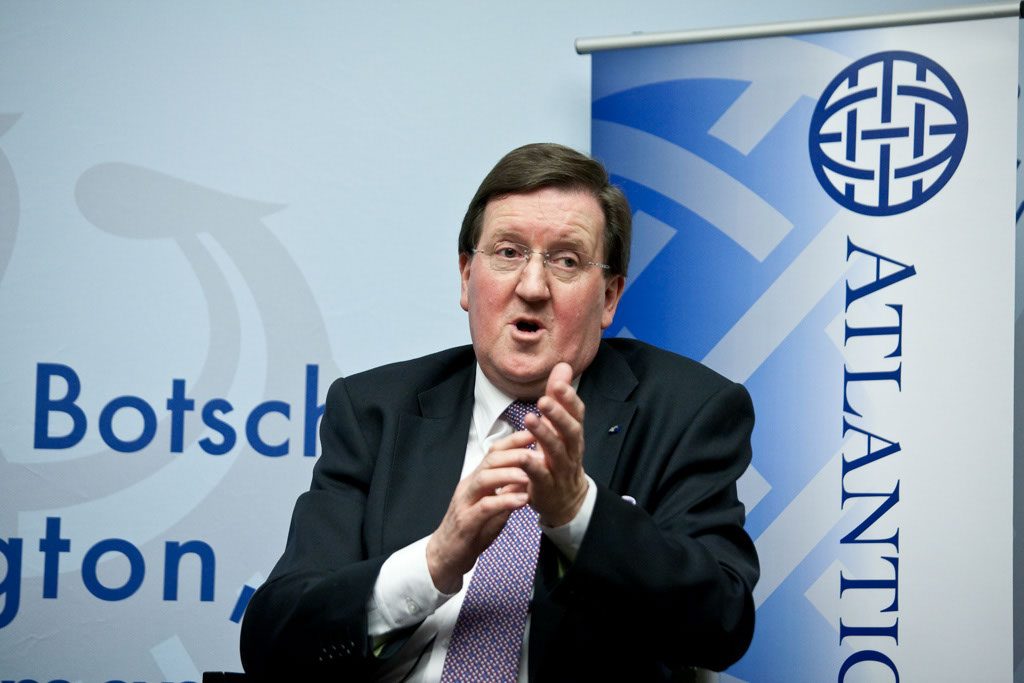
Asked by Atlantic Council president Fred Kempe to explain to Europeans why they should continue fighting and dying in Afghanistan, Lord Robertson replied that the initial case was "If we don’t go to Afghanistan it will come to us." Now, it’s, "If you lose there, they will be back over here again" as they were on 9/11.
The man who was Secretary General when NATO took the decision to invoke Article 5 recalls that, "We all knew why we went in. We knew our own safety was at stake if the Taliban
continued providing a safe haven for the bloodthirsty criminal killers of Al Qaeda." And, he contend, "surely we all now realize what will happen if we leave prematurely, without a sustainable Afghan state in place."
"Rest assured," he warned, "if the Taliban and their allies can defeat the most successful defense alliance in history, why should they stop at Afghanistan? They won’t. We all know all
that, so why can’t we join the dots between going in and getting out?"
That, of course, is the argument that Allied leaders have been making although, perhaps, as Robertson contends, not frequently enough, passionately enough, or effectively enough. But it’s the rationale President Obama used to justify the Afghanistan surge. If the opinion polls are to be believed, however, it’s no longer working on either side of the Atlantic.
The problem is the intermingling of our current mission and the initial rationale for intervention, which are only loosely related.
It’s simply nonsense to say that the Taliban will follow us home if we don’t defeat them in Afghanistan. The Taliban are, after all, a loosely organized conglomeration of Pashtun militants who have no conceivable mission, capability, or base of support outside their tribal areas in Afghanistan and Pakistan. Indeed, some large number of them are what David Kilkullen has termed "accidental guerrillas," motivated to fight only because outside interveners are present.
Of course, Robertson knows that at least as well as I do. The "they" who will presumably "follow us home" are al Qaeda, not their Taliban allies.
But building a case for staying in Afghanistan based on defeating al Qaeda is not easy. By all accounts, NATO and its Coalition allies have crippled al Qaeda in Afghanistan, having long since run the few key leaders not already killed off to Pakistan, Yemen, and elsewhere.
So, then, the case for remaining in Afghanistan becomes more complicated. It’s not that the Taliban will follow us home. Nor that what’s left of al Qaeda in Afghanistan is an existential threat to the Allied homelands. Rather, it’s that, if NATO leaves the job undone, a weak Afghan government will be powerless to prevent the reconstitution of the threat that was in place at the time of the 9/11 attacks and all the blood and treasure spent over the last eight years will have been in vain.
This, as Atlantic Council contributing editor Bernard Finel outlined in some detail last August, is a case that can be made. But it’s not one that, if made honestly, can fit onto a bumper sticker.
James Joyner is managing editor of the Atlantic Council.
Image: robertson-makins-closeup.jpg
